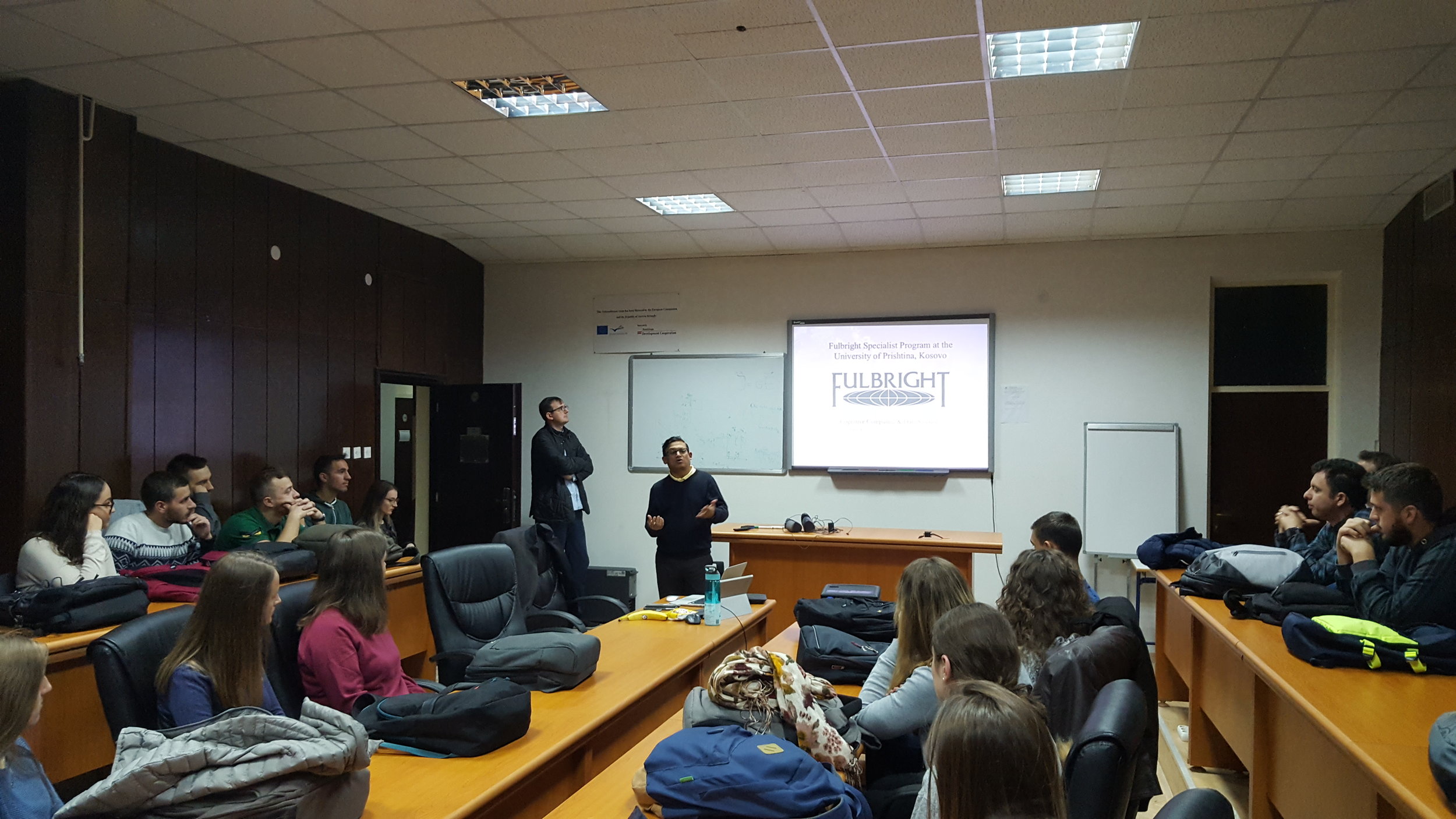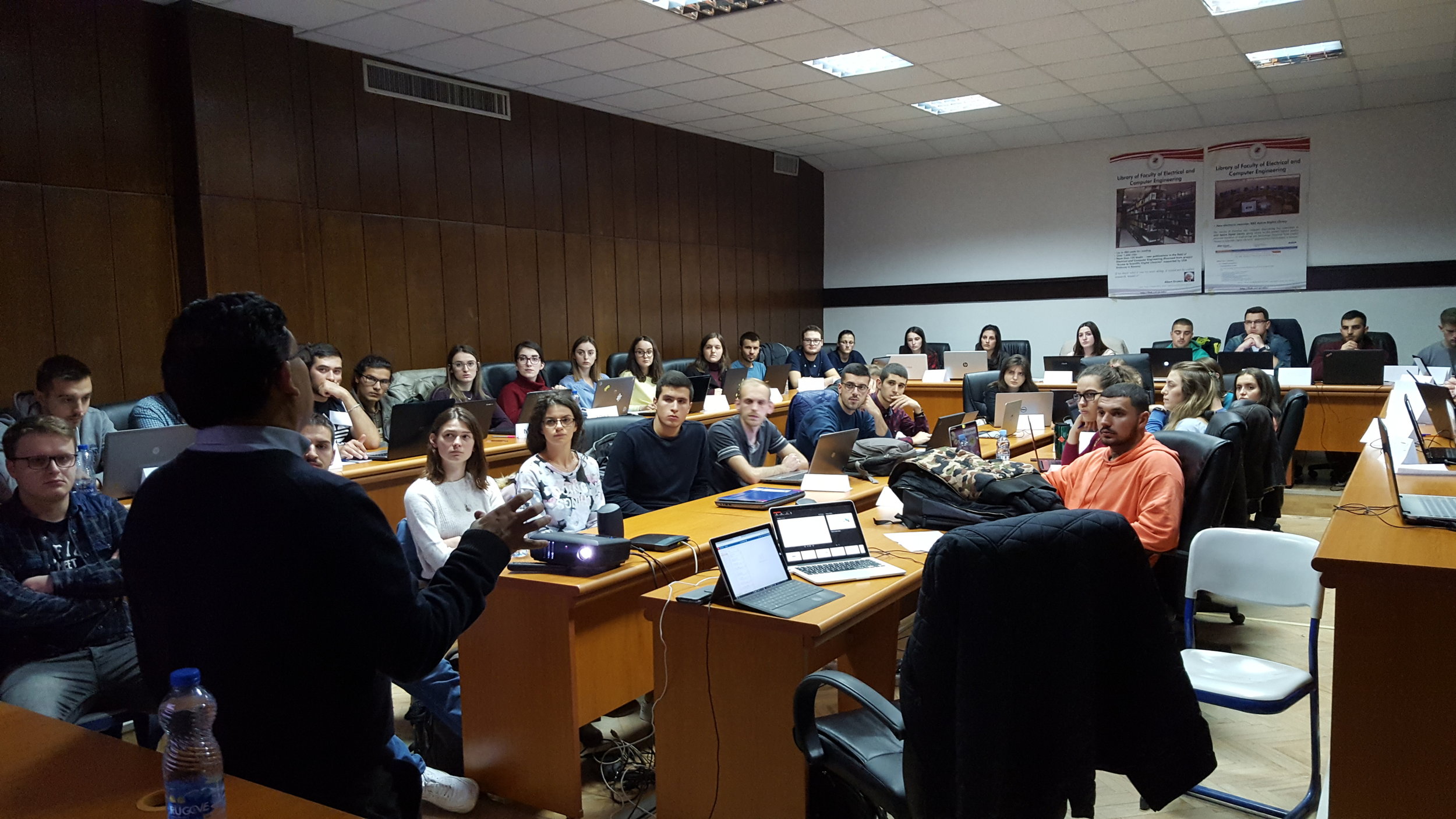“We were looking for contemporary hands-on experience for our students. We definitely got it.”
The Department of Electrical and Computer Engineering at the University of Pristina can trace its roots back almost 60 years when it was established as part of The Technical High School in the former Yugoslavia.
Today, the Department is part of the largest public university in Kosovo and offers classes in cutting-edge fields such as cloud computing, information security, and biometrics and forensics.
Last year, Associate Professor Dr. Blerim Rexha and Fatos Peci, a university assistant, wanted to get a better understanding of advanced trends in cyber security. Dr. Rexha, a former Deputy Minister for Energy and Mining who also heads the computer engineering department at the University of Prishtina, believes that Information and Communications Technologies (ICT) has the potential to become a leading sector for economic growth in Kosovo. Together with his colleague, Dr. Rexha submitted a project application to the Fulbright Specialist Program seeking a U.S. expert to teach undergraduate and graduate students and provide exposure to the latest technologies.
After the application was approved, the Fulbright Specialist Program matched the project with Dr. Murthy Rallapalli, professor of practice at Georgia State University and executive architect at IBM. With decades of experience working in the IT sector, he had just the right mix of academic and industry experience. Dr. Rallapalli arrived in Pristina in late October 2017.
“He was perfect for our needs," says Dr. Rexha.
During the two-week period, Dr. Rallapalli lectured on cognitive computing and cyber security, teaching more than 40 hours at the University of Pristina and the University for Business and Technology, a private institution for higher education specializing in business and technology in Kosovo.
He also introduced interactive teaching tools and software from the IBM Academic Initiative, which offers state-of-the-art resources to schools at no cost.
As Dr. Rexha puts it: “We were looking for contemporary hands-on experience for our students. We definitely got it."
As a Fulbright Specialist, Dr. Rallapalli also appeared on local television talk shows, led a public lecture series on cybersecurity for professionals in industry and academia and consulted with the Computer Emergency Response Team – known as KOS-CERT – a government unit that serves a key role in safeguarding the country’s communication networks, services, and users. Rallapalli became familiar with Kosovo’s cyber security infrastructure and suggested recommendations for security upgrades.
One of the most valuable things Dr. Rallapalli did as a Fulbright Specialist, according to Dr. Rexha, was introduce students to the IBM-run Watson Global Analytics Competition – marking the first time anyone from Kosovo had participated in this important event.
To support students, Dr. Rallapalli hosted several workshops and continued coaching two promising teams via Skype after returning to the United States. Both teams placed in the top 10 globally out of more than 100 teams.
“I was very impressed with the students,” says Dr. Rallapalli, referring to all the students he taught at the university. He also noted that there appear to be more women studying computer engineering in Pristina than back home at Georgia State University.
Dr. Rallapalli has also brought part of his Fulbright experience back to students at Georgia State University. While teaching in Kosovo, he assigned a promising graduate student, Vita Hasani, a special project to visualize and interpret several datasets using the Watson Analytics software. Ms. Hasani worked on it for several months after Dr. Rallapalli’s visit, and then presented her findings to one of his graduate classes at Georgia State University.
During the presentation, students from Kosovo joined the class via Skype and took part in the discussion, giving them experience interacting with their peers in the United States and providing another opportunity to practice their English in a public forum.
Dr. Rallapalli continues to stay in touch with those he met in Kosovo through regular Skype meetings and is trying to connect several former students with internships in artificial intelligence at a company based in Atlanta, Georgia, with offices in Cambridge in the United Kingdom. In February, he returned to Kosovo as the keynote speaker at an international cybersecurity conference. In the fall of 2018, Dr. Rallapalli plans to attend another conference in neighboring Albania and hopes to tie in a visit to Kosovo as well and says going to Kosovo as a Fulbright Specialist was one of the highlights of his life.
Reflecting on the benefits of hosting, Dr. Rexha says he recommends the Fulbright Specialist Program to any academic institution interested in working with a U.S. expert in their field.
“Imagine the expense to send hundreds of students to Georgia State University to attend Murthy Rallapalli lectures,” he says.
“There's no doubt this is the most efficient way to bring knowledge to our institution,” adds Dr. Rexha.



